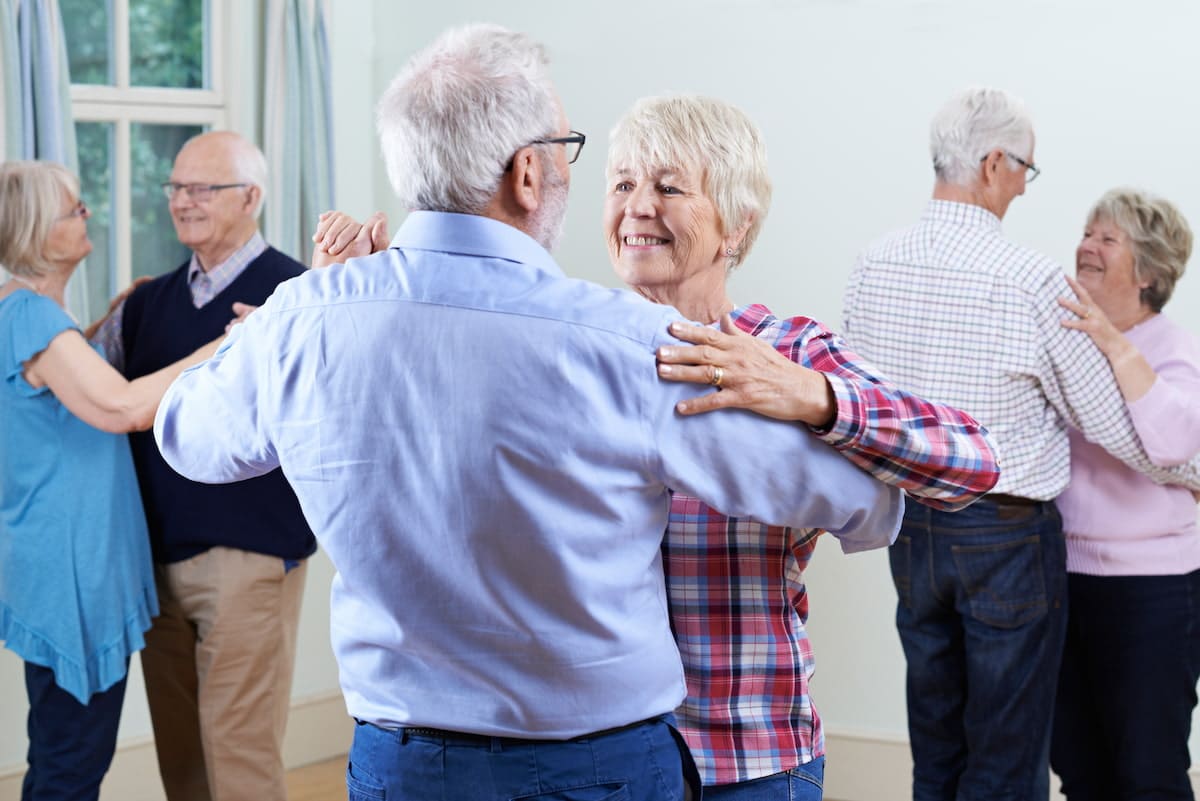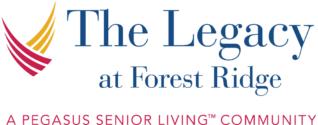Are you wondering how to slow Alzheimer’s progression? You’re not alone. This question is on the minds of millions of people in the country:
- Over six million Americans have Alzheimer’s
- More than 11 million family members act as caregivers
- At least 13 million people are a risk of developing Alzheimer’s by 2050
We’re getting closer to answering that question with recent advancements in science.

Data-based memory care communities are one group leading the charge in not letting the symptoms of Alzheimer’s define residents.
Dr. Sandra Petersen created the Connections memory care program. It is a unique approach to dementia care that focuses on connecting with individuals at different levels and utilizing the neuroplastic process to regain memory and skills.
Her signature Connect, Move, Learn sequence is helping residents discover purpose and meaning.
What are Alzheimer’s and dementia?
Alzheimer’s and dementia are terms frequently used interchangeably. However, they have distinct meanings.
Dementia is a general term for a decline in mental ability severe enough to interfere with daily life. It is a broad category that encompasses a range of medical conditions.
Alzheimer’s is a specific type of dementia. It is a progressive brain disorder that gradually destroys memory and thinking skills, eventually affecting the ability to carry out simple tasks. It’s the most common cause of dementia, representing 60-80% of all dementia cases.
While the exact cause of Alzheimer’s disease isn’t fully understood, it’s likely due to a combination of:
- Genetics
- Environment
- Lifestyle factors
Early symptoms typically include:
- Difficulty remembering new information
- Confusion
- Mood changes
- Difficulty speaking or writing
What is Memory Care?
Memory care is a specialized type of senior care tailored for individuals with memory loss. Memory care units provide an environment designed to meet the unique needs of these individuals.
In a memory care facility, residents receive 24-hour supervised care in a separate wing or floor of a residential facility. The team is specially trained in memory care, understanding the challenges faced by those living with dementia and Alzheimer’s.
These secure communities are designed to help manage the behavioral symptoms of dementia, such as wandering. Moreover, memory care programs often involve various activities intended to stimulate the brain and slow the progression of the disease.
What is Connections?
The Connections memory care program is available in Pegasus Senior Living communities nationwide. We rely on the data from our Senior Vice President of Health and Wellness, Dr. Sandra Peterson.
We are most excited to offer residents the Connect, Move, Learn activity sequence to slow memory loss progression.
Connect
Social connections are vital for mental health. The first step in the program focuses on emotional bonds and relationships. Activities could range from:
- Spiritual discussions
- Current events
- Music appreciation sessions
The objective is to stimulate the brain and create an emotional connection between residents and team members.
The Connections program encourages regular interaction among residents to foster a sense of community and shared experience. Social activities bring joy and stimulate the brain, building resilience against cognitive decline.
Move
The program’s second phase focuses on physical movement, particularly movements that cross the body, which helps with the left-right shift between the brain’s temporal lobes.
Activities can include:
- Yoga
- Passing a ball side to side
- Dancing
- Balloon volleyball
Regular physical activity benefits the heart, circulation, and mental well-being. Even for people showing signs of dementia, exercise has been found to boost proteins in the brain that may help slow decline.
The Connections program incorporates various physical activities tailored to the abilities and preferences of our residents.
Learn
The human brain is incredibly adaptable. The program’s final phase seeks to engage the logical or left side of the brain. Activities in this phase could include:
- Math exercises
- Word finds
- Puzzles
- Group reading sessions
- Art therapy
The goal is to help participants reconnect and express their experiences in the environment. The Connections program offers a range of intellectual pursuits designed to keep the mind sharp and engaged.
Parallel to the Connections program, we also offer specialized programming for all stages of dementia. Each stage requires a unique approach and understanding, and our team is trained to provide the right level of support.
One innovative method we use is the incorporation of Oshibori towels into our routine. These warm, scented towels, commonly used in Japan, are offered to residents before meals. They cleanse the hands, and their warmth and aroma stimulate the senses, promoting appetite and enhancing the dining experience.
This simple ritual can significantly improve nutrition, a crucial aspect of dementia care.
Remember, every small step counts when it comes to brain health. So let’s Connect, Move, and Learn together to slow the progression of Alzheimer’s and dementia.
Reducing the Risk of Dementia
There is no cure for Alzheimer’s and most types of dementia. However, research suggests that certain lifestyle changes can help reduce the risk.
Stay Active
Physical activity is one of the top ways to reduce your risk of dementia. Regular exercise not only keeps the body healthy but also helps in slowing cognitive decline. Whether it’s a brisk walk, a yoga class, or a game of tennis, staying active can make a significant difference.
Eat Healthily
A healthy diet is another crucial factor in slowing the progression of Alzheimer’s. The DASH diet emphasizes:
- Vegetables
- Fruits
- Fat-free or low-fat dairy
The Mediterranean diet, rich in fruits, vegetables, whole grains, and lean proteins, has been suggested to reduce cognitive decline.
Limit Alcohol and Quit Smoking
Reducing alcohol intake and quitting smoking are crucial steps towards a healthier brain. These habits can increase the risk of cardiovascular disease, which has been linked to a higher chance of developing vascular dementia.
Stay Socially Engaged
Social engagement plays a significant role in maintaining mental health. Participating in social activities can build up your brain’s resilience and improve your mood, helping to delay or even prevent dementia.
Mental Stimulation
Keeping your mind active and engaged is another effective way to slow Alzheimer’s progression. This could be through puzzles, reading, writing, or any other activity that challenges the brain.
Get Quality Sleep
A good night’s sleep is essential for brain health. Poor sleep or sleep disorders can increase the risk of Alzheimer’s disease.
While these lifestyle changes can help, it’s also important to manage other health conditions such as heart disease, diabetes, or high blood pressure. These conditions can accelerate the progression of Alzheimer’s if not well-managed.
Slow Dementia Progression with Connections
We believe in creating an environment that promotes social engagement, physical activity, and mental stimulation. Our team of dedicated professionals is here to support residents and their families on the memory loss journey.
Contact a community near you to learn more!
